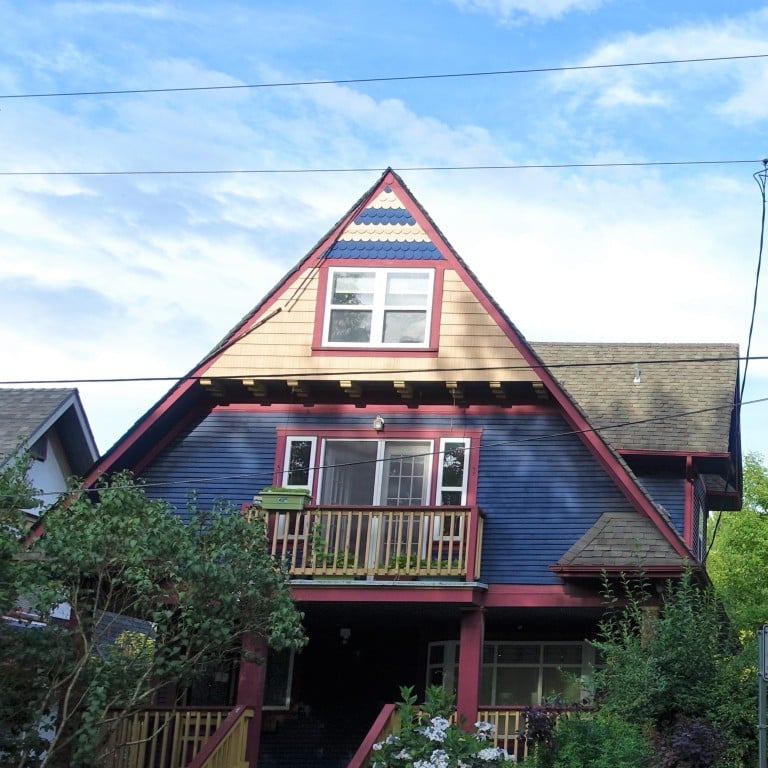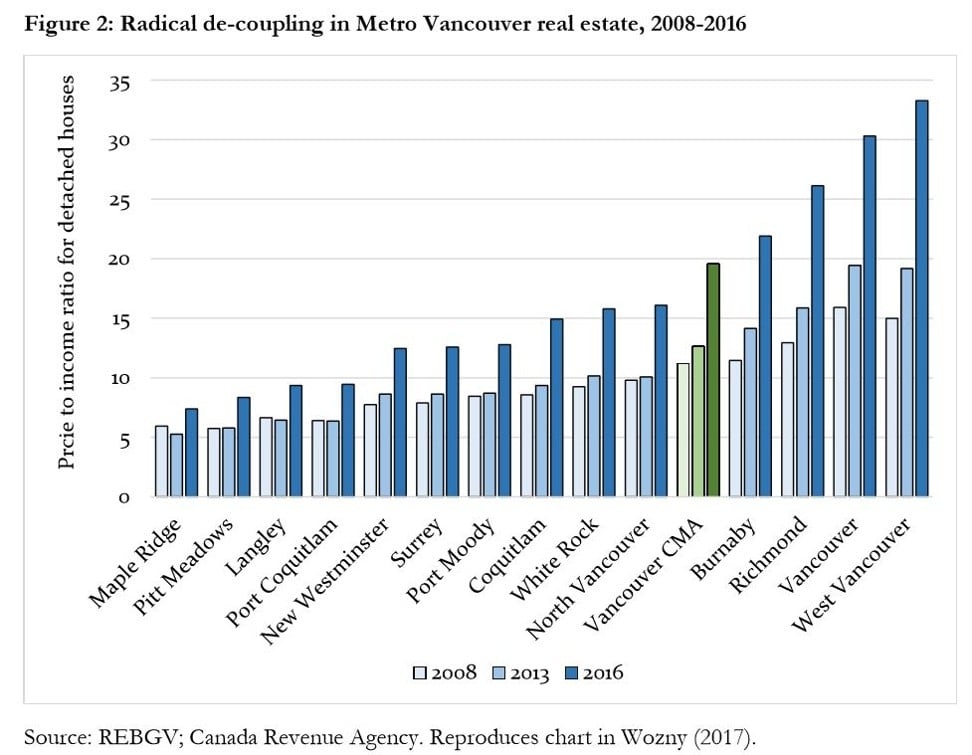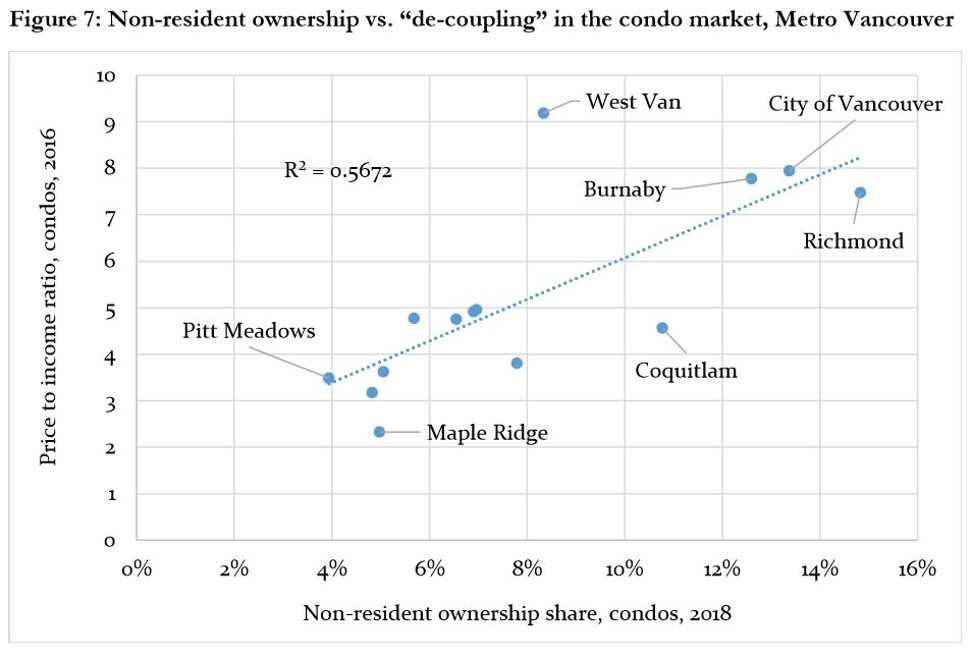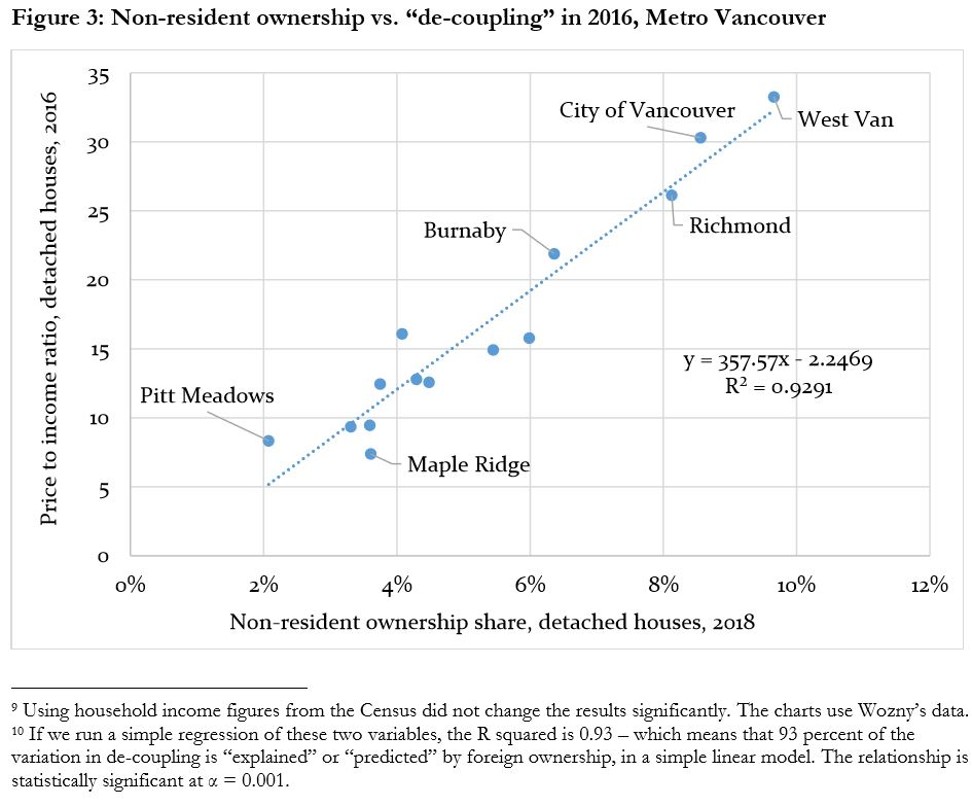
Foreign ownership main culprit for unaffordable housing in Vancouver, a top destination for Chinese funds, ‘unimpeachable’ study says
- A study found a near-perfect 96 per cent correlation between detached housing unaffordability and foreign ownership rates across 14 Vancouver municipalities
- The Canadian city has for decades attracted waves of millionaires and money from mainland China, Hong Kong and Taiwan
A study has found long-sought evidence linking foreign ownership to extreme housing unaffordability in Vancouver, a Canadian city that has attracted waves of Chinese capital and millionaire migrants.
The white paper by Josh Gordon, an assistant professor at Simon Fraser University’s school of public policy, found a near-perfect 96 per cent (or 0.96) correlation between various metro Vancouver municipalities’ price-to-income ratios (a common measure of unaffordability), and the proportion of their detached houses in which at least one owner was a non-resident.
A leading researcher who was not involved in Gordon’s study said its findings were “unimpeachable”: the more that a Vancouver municipality was favoured by non-resident owners, the more unaffordable its detached houses tended to be.
“When I plugged the numbers in it blew my mind … I mean, holy smokes,” said Gordon of the strikingly close correlation.
“This is compelling evidence that when it comes to the extreme ‘decoupling’ [of prices from local incomes] seen in the Vancouver housing market, foreign ownership is the primary culprit,” the paper said.
Vancouver’s housing has long been considered among the world’s most unaffordable. The city ranked second – behind only Hong Kong – in the latest Demographia study of unaffordability in 309 cities around the world, with a price-to-income ratio for all housing of 12.6.
But among detached houses, the ratio is about 25 or 30 to one, in areas popular with Chinese buyers including the City of Vancouver, Richmond and West Vancouver.
Gordon’s paper was not peer reviewed before publication last week, but it was checked afterwards by University of British Columbia geography professor David Ley, who has studied Vancouver real estate unaffordability for decades.
The calculations, based on 2016 data, were also checked by Andy Yan, director of the City Programme at Simon Fraser University, who sat with Gordon as he reproduced the results.
We have these various scholars, with various data sets, all pointing in the same direction. That is a call for action
Ley said of Gordon’s “unimpeachable” argument and conclusions: “Such a high correlation is rarely seen in social science research … It indicates a very strong relationship. So it is the presence of non-resident buyers that is forcing up prices.
“But there’s a qualifier here because it forces up prices relative to incomes … we can more accurately say that non-resident demand shapes affordability.”
The so-called “r-squared” value, depicting how much of the variations in unaffordability could be predicted by non-resident ownership in 2016, was 93 per cent.
Foreign homebuyers in Vancouver hit with HK-style 15pc tax
Gordon conducted the same comparisons using 2013 data and found an r-squared value of 91 per cent.
In the 2016 condominium market, the correlation between the unaffordability ratio and non-resident ownership was also “strong” at 75 per cent, Gordon found, with an r-squared value of 57 per cent. The correlation rose to 88 per cent if the single municipality of West Vancouver was discounted.

Yan said he endorsed Gordon’s study and its “very straightforward” methodology: “This puts together the story about the forces that are behind Vancouver real estate … [it] gives us a foundation and a direction, for how we [produce] effective housing policy.”
Key to that was “understanding just how much Vancouver real estate is connected to the global economy, of which a large component is being driven by China.”
By investigating non-resident ownership, Gordon’s study sought in part to address the issue of “satellite families”, who live in Vancouver but whose primary breadwinner earns abroad.
Rich migrants are exiting Canada but leaving families behind
“[A] family with a low declared Canadian income might live in a multimillion-dollar mansion. This particular situation would represent ‘decoupling’ on steroids,” the study said.
The phenomenon has been closely associated with millionaire migration, primarily from mainland China, Hong Kong and Taiwan. Vancouver was long the world’s most popular destination city for such migrants under wealth-determined schemes, attracting them by the tens of thousands.
Vancouver has recently become a global test bed for affordability policies, with the introduction of a foreign buyers’ tax, a speculation and vacancy tax, and increased provincial property taxes.

These demand-side measures appear to have sent the market into retreat, with sales and prices falling. The average price of a detached house across metro Vancouver is C$1.6 million (US$1.2 million).
Gordon’s study was a response to a landmark 2017 report by the long-time real estate industry analyst Richard Wozny, which came to the “inescapable conclusion” that locally declared incomes could not support prices.
Scared of falling home equity in Vancouver? Get a grip on reality
Wozny, who said he was concerned for the fate of Vancouver amid a runaway real estate market, died of cancer not long after he turned whistle-blower on his industry.
Wozny’s report depicted the decoupling of prices from incomes as he examined 14 Vancouver municipalities. Gordon, who said his work was “testament to Richard Wozny’s instincts and character”, looked at the same municipalities as he tried to find an explanation for the decoupling and its variation among them.

Commonly cited factors such as lax mortgage lending and low interest rates were easily discounted, because they applied equally across the municipalities, said Gordon’s study.
Similarly, development charges, a frequent industry bugbear, did not typically apply to the building or rebuilding of detached houses, the style of home Gordon and Wozny focused on.
Gordon found the correlation with non-resident ownership via a cache of data recently generated by Statistics Canada.
Canada's millionaire migrants earn less than refugees, so why bother with wealth migration?
His findings are consistent with Ley’s previous peer-reviewed research, which found an “unusually decisive” correlation between immigration and Vancouver home prices.
It is also consistent with the findings of Markus Moos and Andrejs Skaburskis, who concluded that Vancouver prices and incomes decoupled because recent immigrants’ housing consumption was less tied to their local labour-market participation than it was for other buyers.
“These are proxies for foreign money at times when we don’t have direct measures of foreign money,” Yan said. “So we have these various scholars, with various data sets, all pointing in the same direction. That is a call for action.”
Correction: A previous version of this story said Gordon’s non-resident ownership data was provided by Statistics Canada and the Canada Mortgage and Housing Corporation. In fact, it was provided solely by Statistics Canada.


